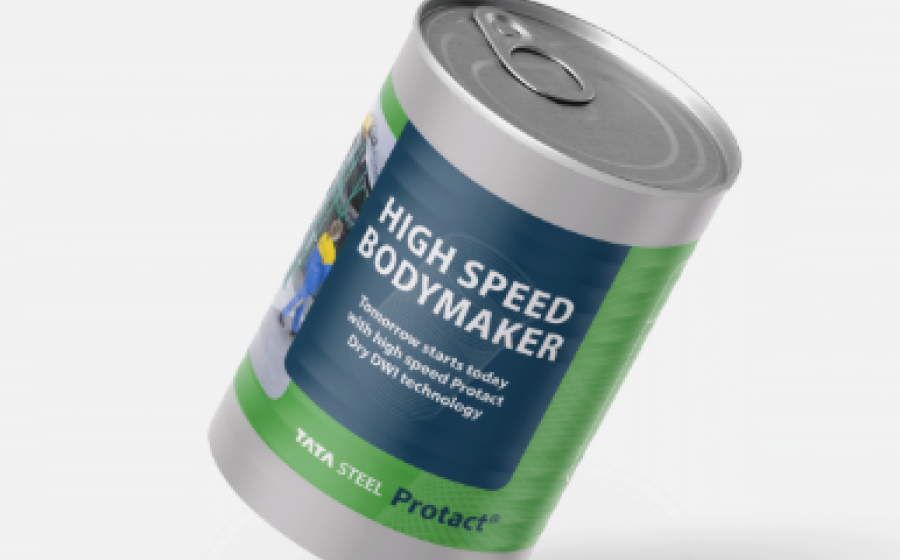
In a bold move to revolutionize the future of food packaging, Tata Steel Nederland has commissioned a next generation can-making line at its R&D facilities, introducing a dry forming process that redefines speed, sustainability, and food safety in the production of steel cans.
At the heart of this innovation is a state-of-the-art bodymaker that dramatically reduces energy and water usage two key challenges in traditional can manufacturing methods. The new line utilizes Tata Steel’s advanced Protact® polymer-coated steel, eliminating the need for external lubricants, lacquer coatings, and water intensive cooling processes. It’s a significant step forward in producing cleaner, safer, and more sustainable food cans.
A Can-Making Revolution
Unlike conventional lines that require water-based emulsions and external cooling both environmentally taxing the newly installed machine uses internally cooled tooling, enabling a dry, friction-reducing forming process. The result? Faster production speeds, reduced operational costs, and a substantially lower carbon footprint.
“This is a transformative moment for us,” said Hans van der Weijde, Director of R&D at Tata Steel Nederland. “The new bodymaker proves that we can maintain industrial-scale efficiency while eliminating outdated and unsustainable production elements. Protact’s polymer coating not only reduces friction but is also forward-looking in terms of compliance with future food safety regulations.”
Designed for Performance, Built for Partnership
Capable of producing up to 400 cans per minute, the new line runs 25% faster than the current industry average, showcasing just how ready it is for high demand applications. But beyond the technology itself, Tata Steel is leveraging the machine as a live demonstration and collaboration platform inviting packaging manufacturers to test and validate the process with their own operations in mind.
“We see this line as a partnership tool,” said Joris Essing, Marketing Manager for Packaging Steel. “We bring the dry forming expertise and the materials innovation, and our customers bring their production know-how. By working together, we’re not only delivering better packaging but making it viable for large-scale rollout.”
Proven Success with Grupo Calvo
That collaborative approach is already paying dividends. Tata Steel’s work with Grupo Calvo, a major player in the seafood sector, led to the development of an innovative Protact-based tuna can. The result: a can that uses less oil, is easier to open, and is lighter, cutting down on transport emissions all while improving shelf appeal and product freshness.
A Champion of Recycling
Steel remains one of the most sustainable materials in the packaging industry. With over 95% of steel food cans recycled in the Netherlands, the material stands as a national leader in circularity. And with the introduction of this new dry forming technology, Tata Steel aims to reinforce the environmental credentials of steel packaging by making the manufacturing process as green as the material itself.
“This is about creating the can of tomorrow,” concluded van der Weijde. “Cleaner to make, safer for food, and easier to recycle. We’re not just thinking ahead we’re building it now.”


